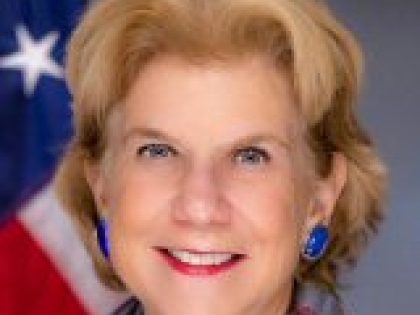
The Crimson: Panelists Discuss Abortion Pill Access, ‘Plan C’ Documentary at Harvard Kennedy School Forum
By Elyse C. Goncalves, Aisling A. McLaughlin, and Katie B. Tian, Contributing Writers
November 28, 2023

By Katherine A. Harvey
Panelists discussed abortion pill access in the United States at a Harvard Kennedy School forum before a screening of the documentary “Plan C” on Monday.
The event featured “Plan C” director Tracy Droz Tragos; New York State Senator Shelley B. Mayer; Linda Prine, the medical director of the Abortion Coalition for Telemedicine; and Harvard School of Public Health professor of the practice Ana Langer.
“Plan C” is a 2023 documentary about activists’ work to increase access to the abortion pill after the fall of Roe v. Wade in 2022.
Sarah Wald, senior policy adviser and chief of staff to the Harvard Kennedy School dean, moderated the discussion.
Prine defined self-managed abortion as any abortion performed without medical supervision, adding that abortion pills can be prescribed in a doctor’s office or ordered online.
“It’s very safe. It’s very effective,” Prine said. “It’s extremely rare that we ever need to tell anybody to go to the hospital.”
Droz Tragos said she was motivated to create the film after witnessing “barriers to access” in abortion clinics in Illinois while working on another documentary. She was further motivated to delve into the field of abortion access after conservative Justice Brett Kavanaugh was named to the Supreme Court in 2018.
She then discovered the organization Plan C, which provides individuals with pills for self-managed abortions.
“You wouldn’t have to pass through a gauntlet of protesters telling you that you were going to hell to get the pills, and for me, that was a paradigm shift and a reason to make this film,” Droz Tragos said.
In 2019, Prine established a miscarriage and abortion hotline alongside other physicians to provide assistance for self-managed abortions. Prine said use of the hotline increased during the Trump presidency due to greater restrictions on reproductive rights and an increase in foreign abortion pills, especially from India and Mexico, that often lacked instructions for use.
Mayer said that after the fall of Roe v. Wade, many blue states passed shield laws protecting women who received an abortion in-state, but substantial obstacles still faced people living out of state, especially poor people and people of color.
“No way would they have the money, the time, the child care, and lose everything in order to go to another state,” Mayer said. “We have to do everything we can for these women who, just by fortune, live in another state that has Republican state legislature.”
Prine said she remains optimistic about the future of reproductive health care and hopes to see the passage of laws that protect abortion nationwide.
“We’ve got a lot of work ahead of us to get better health care systems and to restore democracy,” Prine said.
Mayer emphasized the importance of voter action, explaining that the majority of impactful legislation is created at the local and state levels. She said she believes it is crucial to appeal to women who don’t traditionally vote.
“We have to organize in order to educate and inform that they’re going to lose their rights if they don’t fight back at the state level,” Mayer said.
At the end of the talk, Wald — the moderator of the discussion — pointed to collective action as a common sentiment across panelists.
“I’m hearing you all say that it’s not just one person or one group,” Wald said. “It’s in so many ways, whether it’s legislatively or the women who are willing to drive the vans across state lines.”
Read the article here: https://www.thecrimson.com/article/2023/11/28/iop-abortion-pill-access/